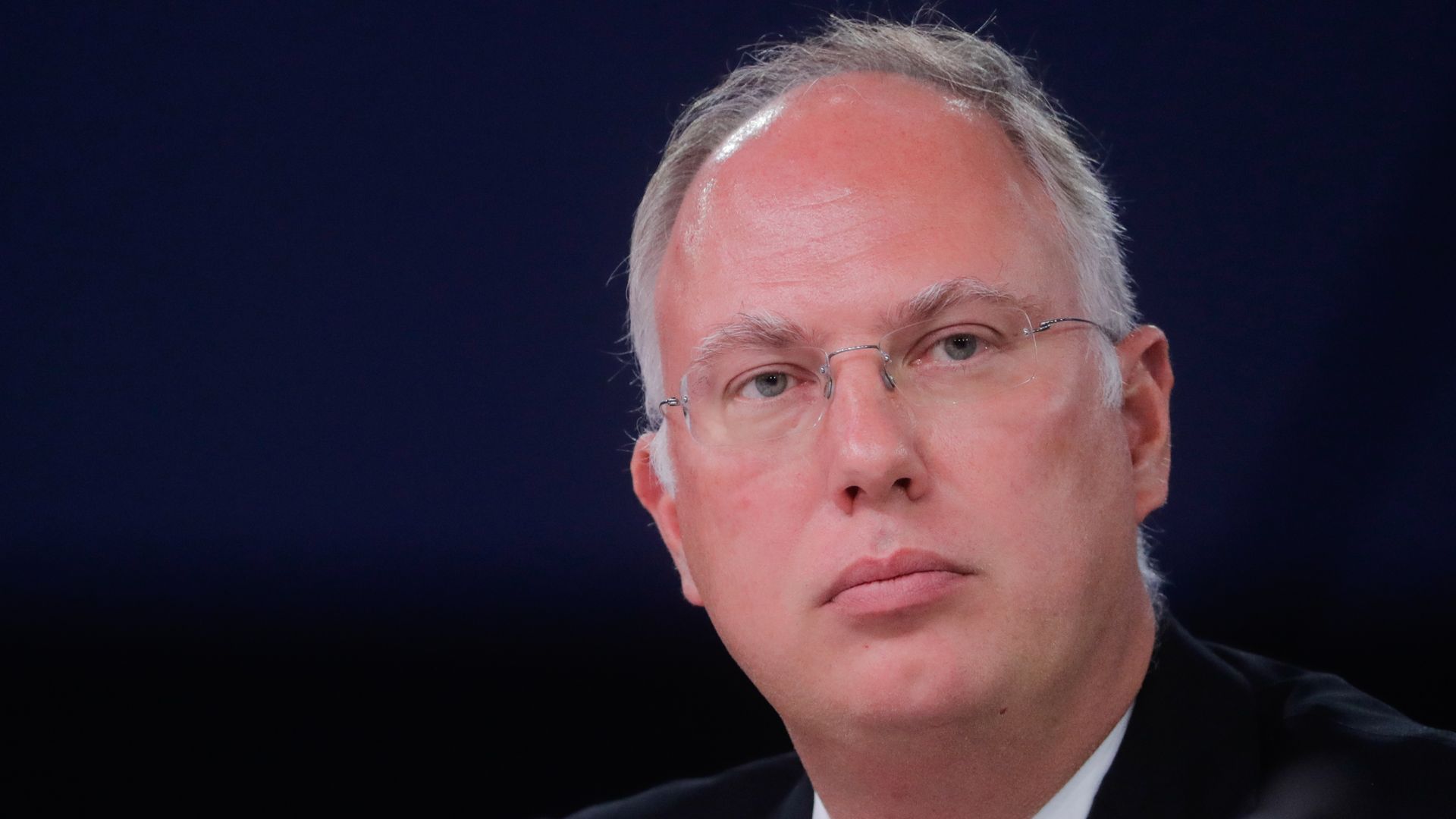OPEC+ meeting marks a pivotal moment in the oil crisis
Add Axios as your preferred source to
see more of our stories on Google.

Russian Direct Investment Fund CEO Kirill Dmitriev. Photo: Mikhail Metzel/TASS via Getty Images
The new few days are slated to bring new efforts to achieved a coordinated cut in global oil production, but success is hardly a sure thing.
Why it matters: The coronavirus outbreak is fueling an unprecedented collapse in demand and has cratered prices, so new cutbacks could at least temper — though hardly alleviate — the market's tailspin.
Driving the news: The OPEC+ group — led by megaproducers Saudi Arabia and Russia — is tentatively scheduled to meet remotely Thursday, per multiple reports.
- But Saudi and Russian officials, as well as other OPEC members, want an agreement that includes other big producers outside the group, notably the United States.
- Officials from Alberta, Canada — the country's main producing province — are slated to take part in the meeting, per the Financial Times and others.
- Norway, Europe's largest producer, on Saturday signaled a willingness to cut, per Reuters.
The big question: Whether there's an opening for U.S. participation in a deal, even though the U.S. market and legal system does not enable top-down production decisions or coordinated industry action.
- However, U.S. production is slated to start falling in the months ahead anyway thanks to the collapse in prices and demand.
But, but, but: Trump has also hinted at more of a stick than carrot approach, while repeatedly claiming in recent days that the Saudis and Russians are closing in on a deal to enable a cut of 10-15 million barrels per day.
- He said at briefings on Saturday and Sunday that he's weighing tariffs on imported oil if the Saudis and Russians don't reach an agreement.
- Trump administration officials have not said whether they would take part in Thursday's OPEC+ session in any way.
Where it stands: Prices surged Thursday and Friday on the prospect of a Saudi-Russia agreement, but fell when markets opened last night after weekend signs of the fraught path to a deal.
- The OPEC+ meeting that had been slated for today was postponed Saturday amid sniping between the Russians and Saudis.
- Brent crude ended Friday around $34-per-barrel, compared to the $22 range a few days earlier. It has bounced back to $33.08 this morning after tumbling last night.
What they're saying
Tea leaves this morning seem to be pointing toward a deal between Russia and Saudi Arabia to revive their joint supply curbs.
Kirill Dmitriev, head of Russia's sovereign wealth fund, tells CNBC that they're "very close" to an agreement.
- "I think the whole market understands that this deal is important and it will bring lots of stability, so much important stability to the market, and we are very close," he said.
Amrita Sen, analyst with the firm Energy Aspects, tells Bloomberg that she thinks chances for major deal are low, but that said, she points out the forces prodding the Saudis.
- “[Crown Prince] Mohammed bin Salman is under heavy political pressure from Trump to demonstrate the Kingdom isn’t trying to bankrupt the U.S. shale industry," she said.
The big picture: Regardless of how the diplomatic initiatives play out, the most powerful market force by far will remain the demand collapse from the pandemic.
- "We expect Brent to average US$20/bbl in April and possibly, at times, to dip lower. Thereafter, much depends on how long demand is suppressed by the effects of Covid-19," the consultancy Wood Mackenzie said in a note Monday.
